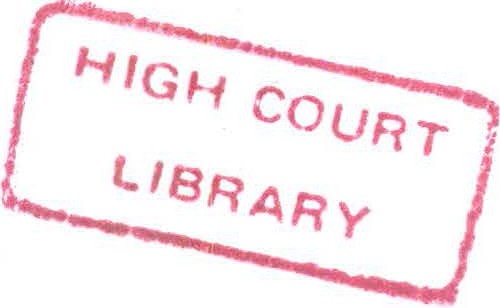
IN THE HIGH COURT OF MALAWI
PRINCIPAL REGISTRY
CRIMINAL DIVISION
HOMICIDE CASE NO. 269 OF 2016
JOHN HARRY ............................................................. APPLICANT
-AND-
THE REPUBLIC .......................................................... RESPONDENT
Coram: Hon. Justice M L Kamwambe
Mtonga of counsel for the State
Katangwe of counsel for the Applicant
Amos ...Official Interpreter
Kamwambe J
RULING
This is an application for bail under section 118(3) of the Criminal Procedure and Evidence Code, Part II section 1 of the Bail Guidelines Act and section 42(2) of the Constitution. The Applicant of 21 years old who hails from Chimbalanga village T/A Dambe in Neno district together with nine other colleagues are alleged to have caused the death to four very elderly women whom they thought to have killed a young girl Flora Kanjete by witchcraft. They are believed to have employed a lightning to strike her in the village. The other accomplices of the Applicant were denied bail. The Applicant was arrested on or about the 28th January, 2016.
The applicant says he is a family man with two boys aged 5 years and 1 year 9 months and therefore unlikely to jump bail if granted.
The State says that it has strong evidence against the Applicant and investigations that are through show that the Applicant participated in assaulting the deceased persons. It appears two other accused persons, Pinga Saukira and Hanreck Doma are at large up to now.
Five of the nine accused persons applied for bail before Kalembera J under Homicide Bail Application Nos. 136 and 137 of 2016. Bail was denied considering that their release would cause a sense of outrage and anger in the public leading to reprisals against the applicants. The State prays that this matter be treated alike.
Bail is a right but is not an absolute right. The court has discretion whether to grant it or not. All cases, however serious, are bailable. There is no statutory list of offences in which bail can never be granted. Courts have to exercise their discretion judicially.
I have said it many times that it is not enough f or the State just to say on affidavit that they have strong evidence without demonstrating how strong the evidence is. Under the Bail Guidelines Ac t the courts are advised to consider the strength of the evidence against the accused person the idea being that strong evidence would entice one to jump bail and fail to attend trial. Therefore it is necessary for the court to do the balancing act between the evidence of the accused and the State. This cannot happen if the State merely submits that there is strong evidence against the accuse person and does not show that evidence on affidavit. In this way you deny the court of vital information. I would not mind if a copy of the case docket was attached f or me to see personally that indeed there is convincing evidence of
participation in the crime. The other issue is that the prescribed custody period and would be extension time have since expired, as such, the Applicant is being unlawfully held in custody (see section 161 G and H). The State has not furnished the court with proof of extension of pre-trial custody time.
Of course this case received much publicity in newspapers and electronic media. Does this justify why the Applicant should not be granted bail? I do not think so. A court of law should look at the facts before it and not what happens outside court. The court may just take judicial notice of its publicity and no more. Further, there is no social welfare report to show that the Applicant would not be allowed back into the village or that there are threats of reprisals. Otherwise, such assertions emanate from the vacuum.
The State says that like cases should be treated alike. Since the others were refused bail, the Applicant should meet the same fate. I beg to disagree because each person shall be tried as an individual and the court shall determine how each participated. One may have been present at the crime scene but that does not mean participation at all.
In the light of the above, I direct under section 2 of Part II of the Bail Guidelines Act that the State do make and furnish the court by 4th February, 20 1 7 with further evidence to enable the court make an appropriate order.
![]()
M L Kamwambe
JUDGE